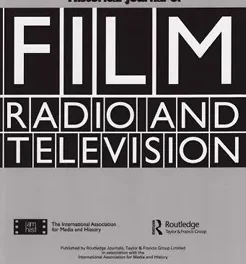Date of pre-conference: 2 October 2020
Call for papers deadline: 15 May 2020
Notificiation: 1 June 2020
Organisers:
João Carlos Correia, University of Beira Interior (jcorreia@ubi.pt)
Pedro Jerónimo, University of Beira Interior (pj@ubi.pt)
Inês Amaral, University of Coimbra (ines.amaral@uc.pt)
Sponsors
Re/media.Lab – Laboratory and Incubator of Local Media
LabCom – Communication and Arts
Media Veritas (media literacy program)
Journalism and Society SOPCOM Working Group
Brief Description
The aim proposed for this ECREA 2020 pre-conference is to promote research that helps to define policies and strategies contributing to combat and effectively minimize the phenomena of disinformation and manipulation in the journalistic field. Thus, we intend to join together researchers who are interested in the topic, to develop this field of disinformation studies .
Call for papers
The main goal of the event is to develop a set of studies and policies that allow us to identify and contribute to combat and effectively minimize the phenomena of misinformation and manipulation in the journalistic field.
In addition to Fake news, the study of disinformation in the journalistic field includes theoretical paradigms and empirical approaches that go beyond those: bias, concealment of facts, agenda building, strategic use of sources, mobilization of emotion, empathic media and omission of data are studied in other contexts of journalism studies helping to clarify this new phenomenon.
There is a vast experience in the media effects theory, whose researchers studied, in due course, a set of phenomena of information and manipulation that today, with the necessary adaptations, constitute a corpus of examples and inspiration for new researches in different contexts.
Finally, new research trends began to emerge which constitute a valuable theoretical and experimental corpus for the contemporary and present times: empathic media, recognition of patterns of reading, identification of behavior and consumption patterns with far-reaching consequences around on social, cultural and political life and considerable impact on democratic, electoral and civic participation practices.
The contributions to the event should focus (among others) the following topics:
- Identifying through case studies, examples of media whether revealing weaknesses or, instead, using strategies particularly directed to fight the phenomenon;
- Discussing new manipulation and disinformation strategies, considering in those the study of the audience from the perspective of their manipulation through the mobilization of emotions;
- Discussing a theoretical and systematic framework for the analysis of disinformation and manipulation phenomena;
- Identifying the use of devices and tools that help to combat the phenomenon of disinformation;
- Identifying professional practices and professional routines that help to combat the disinformation phenomena;
- Identifying and proposing public policies to decision-makers that helps to minimize and fighting disinformation phenomena;
- Discussing the relevance of a subfield called Disinformation studies.
Abstracts of 400 words with 3 -5 keywords (excluding tables, figures, and references) must be written in English and should outline the research topic as well as the theoretical and methodological approach. Pictures/tables/charts are allowed within the abstract but do not count against the word count. All abstracts will be subject to a double-blind peer review.
Submit your abstract as an e-mail attachment with no references to the author(s). Author(s) details (name, affiliation and contact details) must be included in the e-mail message. Submit to jcorreia@ubi.pt, pj@ubi.pt and ines.amaral@uc.pt.





